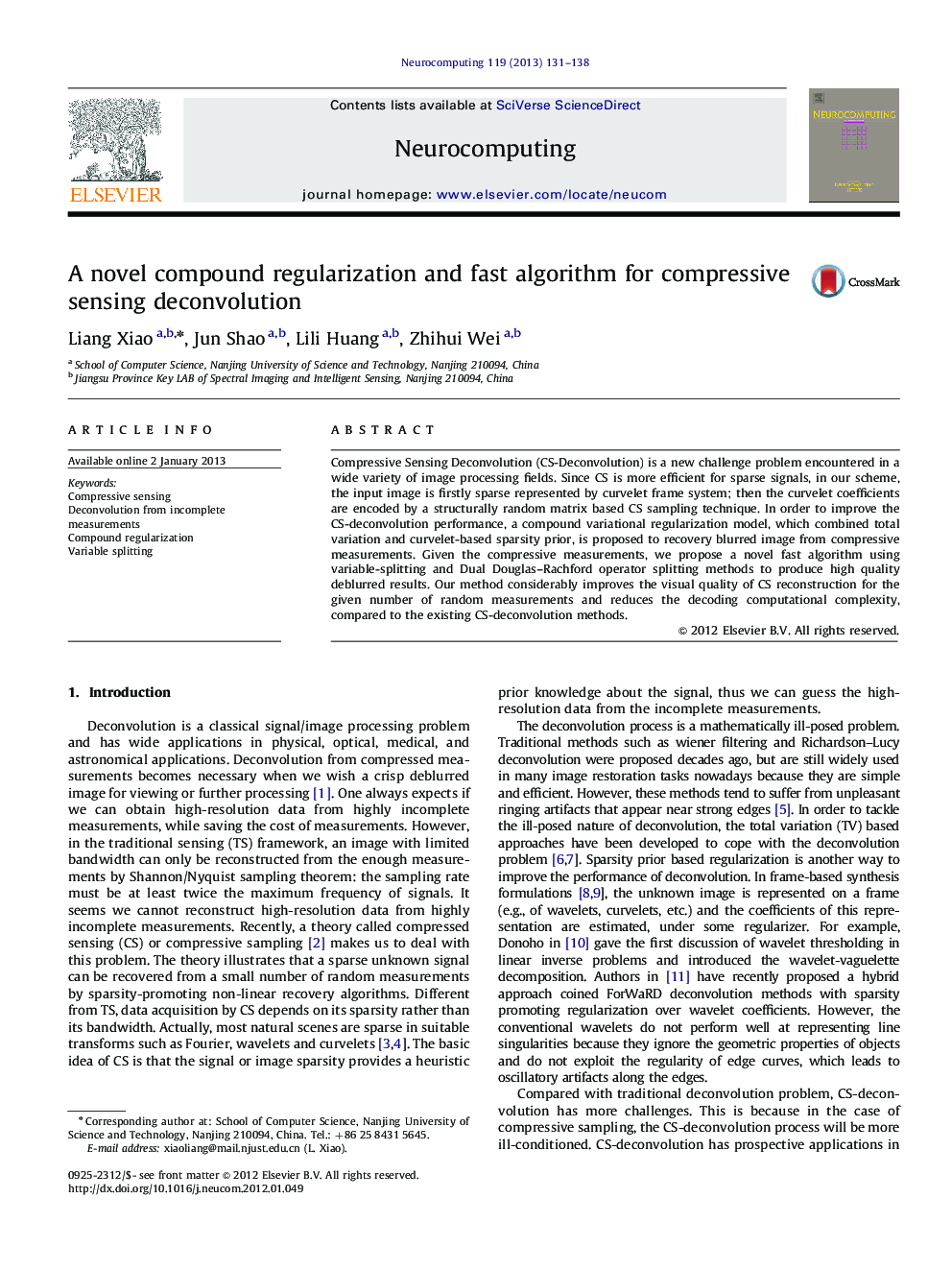| Article ID | Journal | Published Year | Pages | File Type |
|---|---|---|---|---|
| 410319 | Neurocomputing | 2013 | 8 Pages |
Compressive Sensing Deconvolution (CS-Deconvolution) is a new challenge problem encountered in a wide variety of image processing fields. Since CS is more efficient for sparse signals, in our scheme, the input image is firstly sparse represented by curvelet frame system; then the curvelet coefficients are encoded by a structurally random matrix based CS sampling technique. In order to improve the CS-deconvolution performance, a compound variational regularization model, which combined total variation and curvelet-based sparsity prior, is proposed to recovery blurred image from compressive measurements. Given the compressive measurements, we propose a novel fast algorithm using variable-splitting and Dual Douglas–Rachford operator splitting methods to produce high quality deblurred results. Our method considerably improves the visual quality of CS reconstruction for the given number of random measurements and reduces the decoding computational complexity, compared to the existing CS-deconvolution methods.
